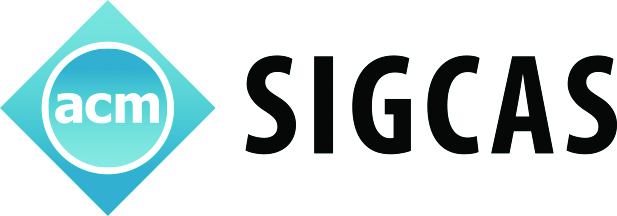Paul Spiesberger

Short Bio: Paul Spiesberger graduated from the Vienna University of Technology with a degree in computer science. He is currently working with INSO as the Operative Head of ROTA and lecturer in the field of mobile technologies and ICT4D. Since 2024, he has been an Assistant Professor at the Institute of Software Technology located at TU Graz. Paul is also employed as a senior lead software engineer for mobile technologies at RISE. In the past, he won several national and international awards for his work at Os – a collective to tackle social issues with ICTs. Since 2014, Paul has been the chair of ICT4D.at, and in 2021, he joined the ICT4D Collective.
Title: Empowering Global Citizens: Enhancing Stakeholder Collaboration for
Positive ICT Impact
Abstract:
Information technology (IT) is not only embedded in a complex social and economic context with a wide range of implications on an individual and collective level; it is also invented, designed, created, implemented, run, maintained, policed, restricted, studied, used and debated on many different levels by a diverse set of stakeholders. Activists, software developers, philosophers, companies, politicians, investors, engineers, social workers, parents, teachers, and researchers all contribute to a debate on how we should use the (positive) potential of IT. As most stakeholders realize, technology is not neutral; technology always serves a purpose, and technology is always created by an entity with an agenda. Working as a software engineer in the private sector, leading a non-profit ICT4D-focused NGO, and working as a researcher in the field of ICT4D surfaced that most of the previously mentioned stakeholders rarely talk with each other. Some define IT hypes, others develop the technologies, many debate their consequences and countless benefits from the economic perspective, and a few foster their power and influence over the many. In this talk, participants are invited to reflect upon how we can achieve the conference’s goal of a positive societal impact for this new global citizen and put a focus on the interchange of stakeholders and how we can broaden the discourse.
Thomas BASIKOLO

Short Bio: Thomas BASIKOLO is Programme Officer in the Telecommunication Standardization Policy Department of the ITU Telecommunication Standardization Bureau (TSB). He coordinates and manages the ITU AI/ML in 5G Challenge and is an advisor to the ITU-T Focus group on Autonomous Networks. Prior to joining ITU, he worked as a Research Engineer in the Engineering Department of Microwave Factory Co., Ltd, Tokyo, Japan.
He received a PhD in Electrical and Computer Engineering from Yokohama National University, Japan. He is recipient of multiple Best Paper Awards, the IEEE AP–S Japan Student Award and the Young Engineer of the year award by IEEE AP–S Japan in 2018.
He has co-authored peer-reviewed journal and conference papers, predominantly in the areas wireless communications and antenna engineering. He serves as a Reviewer of IEEE and IEICE Journals. His interests includes, machine learning, deep learning and network science, and their applications in wireless networks.
Title: Innovating for impact: The role of AI and emerging technology in advancing SDGs
Abstract:
The integration of advanced technologies such as artificial intelligence (AI), tinyML (tiny Machine Learning), and the Metaverse provides unique opportunities to accelerate progress toward achieving the Sustainable Development Goals (SDGs). These technologies hold the potential to transform various sectors by making solutions more accessible, efficient, and scalable.
This talk will discuss how emerging technologies can strategically be used to address complex challenges and drive societal progress towards the SDGs. I will discuss the ITU’s AI for Good work by showcasing the potential of AI in health and climate action, enhancing decision-making processes, and facilitating the inclusion of underserved populations. The application of tinyML (through the tinyML for Good activities) will be highlighted for its ability to deliver powerful AI capabilities directly on-device, promoting energy efficiency and enabling real-time data processing in remote areas without the need for continuous cloud connectivity. This capability is crucial for environmental monitoring and agricultural optimizations, contributing directly to SDG targets.
Additionally, the concept of the metaverse will be discussed as a platform for immersive education and training environments that can revolutionize learning and skills development, aligning with the educational and economic goals of the SDGs. The presentation will provide an overview on how AI, tinyML, and the metaverse can be not just tools for technological advancement, but catalysts for meaningful and sustainable change.





